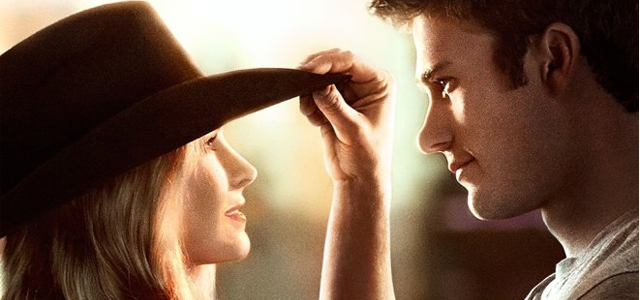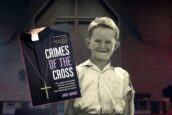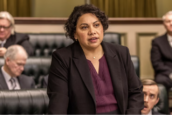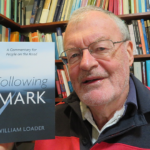
The Longest Ride

(M) Starring: Britt Robertson, Scott Eastwood, Alan Alda
Cowboys, art galleries and two love stories that span three generations. A strange mix for a romantic drama, but it is the basis for the newest Nicholas Sparks-inspired film, The Longest Ride. Art student Sophia (Britt Robertson), and bull rider Luke (Scott Eastwood) are an unlikely couple that must choose between newfound love and their dreams. Their story becomes a parallel journey, due to a chance meeting with a man who helps them to define true, sacrificial love. This tangled, multi-generational tale of love and sacrifice delves into the depths of relationships and considers what truly matters in life.
Nicolas Sparks has become a cottage industry within himself. From The Notebook to Safe Haven, author Sparks singlehandedly supplies this generation with romantically themed dramas. Mentioning Sparks can cause most men to squirm. Yet, this self-proclaimed master storyteller has developed a formula for novels and films to keep people coming back for more.
Although Sparks’ storytelling is predictable and shmaltzy, the word that came to mind after leaving The Longest Ride was “surprised”. Advertising for the film suggests it will be a new version of Urban Cowboy (1980) but the cowboy element is a mere foot note in this multi-layered love story.
The Longest Ride is a conventional romance, but an enjoyable one. Scott Eastwood (yes, he’s the son of Clint) and Britt Robertson have good chemistry and are believable as a couple who find themselves at the turning point of their young lives. Their story is the central relationship, but it is not what makes this film enjoyable.
The saving grace is the casting of Alan Alda (Mash), as the crotchety but lovable Ira. His role helps to differentiate all of Sparks’ other stories from this one. Without giving too much away, his love story with wife Ruth, provides the beating heart to this romantic tale. The portrayal of their love affair has the benefit of being told through flashbacks, by director George Tillman Jr. (Faster, Notorious). This allows for focus upon their love story without unnecessary distractions from other aspects of their lives.
The ups and downs of their relationship are meant to mirror the younger couple’s love journey. In the end, though, the senior couple’s tale provides more depth and believability because of what they have to overcome. Their marriage proves that the richness of a relationship comes with time and something all people should aspire to in their relationships. In contrast, Sophia and Luke’s love story is, at times, unintentionally awkward. This was apparent during one of the key romantic scenes when the audience burst into laughter at the predictability of the love story.
The Longest Ride may not be a cinematic triumph, but it does open the door to some of life’s deeper considerations. One of the best lines from Ira to Sophia is “Love requires sacrifice… always.” It seems simple, but is profound in it’s context. Sacrificial love is a consistent theme throughout many romantic dramas, but director Tillman Jr. manages to masterfully show this love at different points in people’s lives and relationships.
This study of personal dreams, familial desires and allowing people to let their loved ones go for the sake of their happiness gives this story an unexpected depth. But like other Sparks’ stories, The Longest Ride does offer a “tying off all the loose ends” twist. This was unnecessary but will leave many satisfied with, if conflicted by, the conclusion.
Not one of the great cinematic romances, but The Longest Ride was surprisingly entertaining. Like the lollies at the concession stand, it was sweet, enjoyable for a moment, but inevitably forgettable.
There were some pleasant surprises in The Longest Ride. It surpassed expectations, although those early expectations were pretty low. For the blokes, the story has bull-riding and Alan Alda. For the ladies, the romance has a hint of testosterone – with which to coerce your loved one to see it with you. If anything, it should make for some interesting conversations about the sacrifice that comes with any love story.
What are the bigger questions to consider from this film?
- What is sacrificial love?(John 15:13, Ephesians 5:25)
- What does the Bible say about adoption? (Ephesians 1:5, Hebrews 2:13)
- Does God care about my dreams? (Jeremiah 29:11, Proverbs 16:3)
Russell Matthews works for City Bible Forum Sydney and is a film blogger



























































